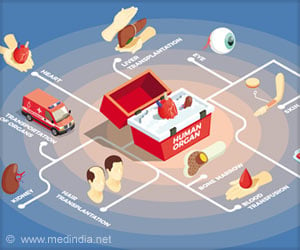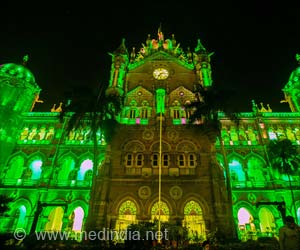Highlights:
- About 60 percent of
India’s organ donation pledges are from youth between 18 and 30 years of
age
- Similarly, 80
percent of the country’s deceased donors are from the 18 to 40 age bracket
- The youth of India
are turning out to be great influencers
The sense of
altruism and passion for social action of the Indian youth have become
crucial aspects in strengthening the nation’s organ donation and transplant
program. Almost 60% of the organ donation pledges in the country are from its youth who are in the age group of 18 to 30. About 80
percent of India’s deceased donors are also from the 18 to 40 age bracket.
An
Intensivist from Fortis Hospital, Dr. Rahul Pandit elucidates this point with
an example. Deeyan Udani, a 7-year old, Sydney-based boy who had suffered from
brain death in 2016 while on a visit to India, went on to donate his organs.
“The child had heard of organ donation in school and expressed his desire
to become a donor. His wish must have played a role in convincing his parents,” said Dr. Pandit.
‘Organ donation drive in India is being led by youngsters. The youth of India has emerged as the backbone of the country’s organ donation and transplantation program and this is a welcome move.’
Read More..
The process
of seeking consent for organ donation becomes easier if the family approached
has a young member as part of it, the experts say.
“My brother and I had heard about organ donation and felt it would be
the best thing. We were saving lives,” says Vaibhav Sanghvi, a second-year
engineering student of D J Sanghavi College in Juhu. Vaibhav and his family had
consented to donate his mother’s organs after she was declared brain dead in
2016, a month after his 10
th-grade results were declared.
Dr. Sunil
Shroff of MOHAN Foundation, an NGO that has been organizing
awareness drives in schools and colleges, says that the youth are more
proactive and keen to adopt new ideas.
“Despite
the stigma, we see the youth is willing to donate,” he commented. The Foundation
also launched last year, the 'Angels of Change’ a program that aims to spread
awareness among the youth.
“Teaching just
15 youngsters means the message reaches up to 60 people in a short time,”
said Dr. Hemal Kanvinde of MOHAN Foundation.
Dr. Vasanthi
Ramesh, Director of the National Organ and Tissue Transplant Organization (NOTTO), agrees and says,
“Wherever
the youth are involved, they have an exponential effect. When a youngster
convinces his family, everyone listens.”
Awareness
drives targeting the youth are being organized by the government organizations
like the Regional Organ and Tissue Organization (ROTTO), State
Organ and Tissue Organization (SOTTO) and the Zonal Transplant Coordination Centres.
Director of
the ROTTO – Western Region, Dr. Astrid Lobo Gajiwala said,
“When we talk to young people, they are open to the idea. They are
willing to pledge.” Advertisement
“The Indian social structure has traditionally
been such that whatever elders say is followed. But this is changing as youth
are emerging as influencers. They are logical and vocal. For issues needing
heightened awareness, youth play a stellar role,” said Dr.
Ram Narain, CEO of Kokilaben Ambani Hospital.
Source-Medindia











